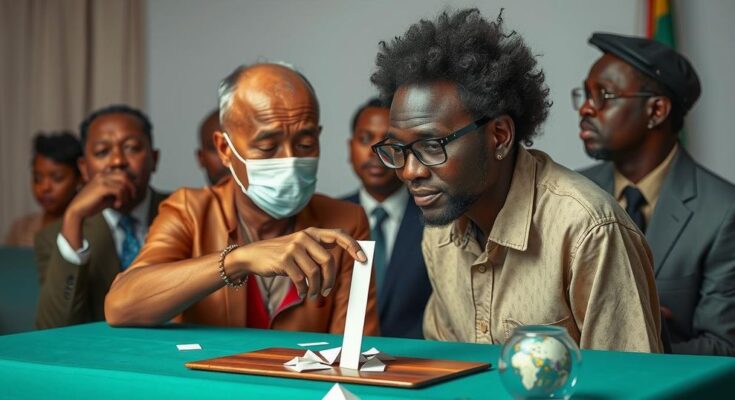The Comoros opposition, led by Daoud Abdallah Mohamed, has rejected the results of the legislative elections, alleging severe fraud. Despite the claims, the ruling CRC party claims a strong victory amidst reported electoral discrepancies. Discontent regarding the electoral integrity has led to boycotts from major opposition factions.
On Monday, an opposition leader from the Comoros vehemently rejected the results of the recent legislative elections, which were primarily boycotted by dissident factions due to allegations of significant electoral malpractice. Daoud Abdallah Mohamed, the leader of the United Opposition coalition, asserted that the elections were characterized by egregious fraud, including reported incidents of ballot box stuffing and instances where the votes exceeded the number of registered voters.
Despite these accusations, the independent electoral commission announced that candidates from the ruling Convention for the Renewal of the Comoros (CRC) won 12 of the available seats, claiming a voter turnout of 70 percent. Critics noted discrepancies in Anjouan, the densely populated island which serves as the political stronghold of President Azali Assoumani, where turnout figures seemed inconsistent as mentioned by an anonymous observer.
The electoral minister, Fakridine Mahamoud, has not publicly commented on the claims of electoral fraud. Furthermore, four of the five constituencies in Moheli had only one candidate from the ruling party, as the only opposition candidate withdrew from the race. Assoumani, who has held power since 2016, dismissed the charges of impropriety, stating, “It is not the first time the opposition has denounced elections. Now, it is up to them to prove their denunciations.” A second round of elections is slated for February 16, but Mohamed has indicated that the United Opposition will not participate.
The political landscape in the Comoros has been marked by contention and allegations of electoral fraud, particularly during legislative elections. The current President, Azali Assoumani, has faced ongoing accusations from opposition parties regarding electoral integrity since coming to power in 2016. The recent elections have been particularly controversial, with several opposition groups opting not to participate, claiming the electoral process lacks transparency and fairness. This backdrop of distrust casts a shadow over the ruling party’s proclaimed electoral successes.
In summary, the recent legislative elections in the Comoros have sparked significant controversy, with the opposition labeling the process as fraudulent and marked by irregularities. The ruling CRC party, however, has declared a decisive victory amidst a backdrop of boycotts and accusations of unfair practices. As the nation prepares for another voting round in February, the credibility of the electoral process remains a critical concern for many stakeholders.
Original Source: www.barrons.com




